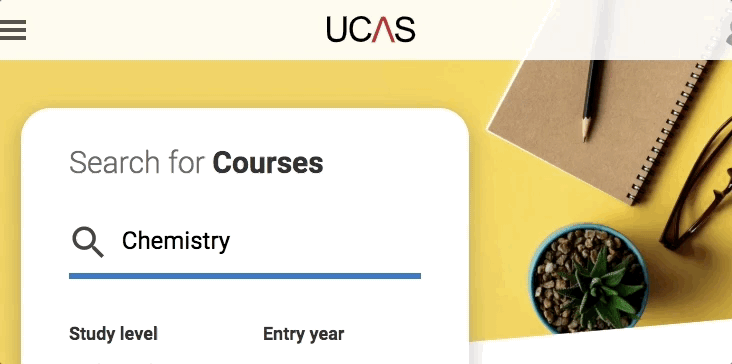

Studying in the UK: Selecting Your High School Courses

CURIO’s UK Head Counselor, Suzanna will share knowledge to students focusing on UK education, UK G5 colleges, admission requirements, study abroad planning, background enhancement, essay writing, application procedures, scholarships, UK visas, accommodation, expenses and other important information to help you study in the UK.
▌COLUMN EDITOR
Suzanna Brown
With years of experience in international education, up to date knowledge of UK admission trends, native English speaker, and receiver of the British Council’s “Educational Consultant Qualification Certificate” Suzanna is committed to helping students carry out a comprehensive plan for successful studying in the UK.
▌This Week’s Subject ——
“High School Elective Requirements For Selective Schools”
▌Core Content ——

▌Q&A With a College Counselor
Question #1
Why do you say that choosing courses in high school is critical? What does this have to do with successfully applying for a UK undergraduate course?
Suzanna:
No matter which country you plan to choose as your study destination, whether it is the United States, Canada, the United Kingdom or Australia, the course subjects you choose in high school will greatly affect university admissions. In particular, students applying for studying in the UK need to pay attention to the fact that British universities, especially top universities, do not just look at their scores. The university may require you to take one or more specific subjects to show that they are suitable for a certain undergraduate course (major). This is also an important factor to consider when choosing A-levels subjects or IB advanced courses.
Question #2:
What are the entry requirements for applying for a UK undergraduate course?
Suzanna:
Admission requirements mainly include academic and language scores.
❶ Academic results
Entry requirements will vary for each university and undergraduate major. They usually require you to obtain competitive scores to show the school that you have the prerequisite knowledge and skills required for the major.
The most commonly accepted high school courses are A-Level and IB courses. AP courses are also acceptable, but universities may require AP students to take a one-year foundation course. A-Level and IB students can usually apply directly to their chosen undergraduate program (major).
For example, the UCL economics major requires:
A-Level students provide A * AA (including mathematics A *, and preferably A),
IB students, 39 points, including 19 points for three advanced courses, including one of the subjects is advanced mathematics, at least 7 points, at least 6 points in one economics, and no less than 5 points in other advanced courses.
❷ English language proficiency requires
UK universities accept both IELTS and TOEFL test scores
Example, IELTS scores for UCL undergraduate majors:
Standard level: 6.5 (6.0)
Excellent level: 7.0 (6.5)
Advanced level: 7.5 (6.5)
TOEFL scores required for direct entry to the undergraduate Level:
Standard level: 90 points (not low in reading and writing) At 24 points, speaking and listening are not less than 20 points)
Excellent level: 100 points (same as above)
Higher-level: 109 points (same as above)
Students who choose the TOEFL test need to submit test scores required for admission. If your language performance is not up to standard or you want to go to the UK to adapt to the learning environment in advance, you can only submit IELTS results to apply for preschool English courses. In this case, IELTS test results are also a requirement of the UK visa process. Therefore, I strongly recommend that you prepare for the IELTS test because IELTS is the language test of choice for British universities and one of the necessary materials required for a British visa.
Question #3:
There is so much information online about the entry requirements for UK universities. Do you have any recommended websites or query tools?
Suzanna:
The best way to do preliminary research on courses and universities is through the UCAS website. UCAS provides admissions services to all universities in the UK. Its website provides you with a lot of very useful information, tools, and resources.
❶ UCAS Course Search can provide you with a complete list of all UK undergraduate programs. You can find course introductions, admission requirements, application procedures, tuition and scholarship information, and links to the university course official website on each undergraduate course page.
❷ University websites often list course requirements, course details, admissions requirements, and other useful information.
Before applying to study abroad, you need to have a more systematic understanding of your major. Degree courses are very professional in the UK and you must focus on your subject knowledge from the first day of class. However, there are some more flexible courses, so choose to go to the university website before optimizing the course description for more information.
Question #4
Choosing the target university and the corresponding major requires choosing subjects in the early stage of high school. So how can I determine what major I like?
Suzanna:
Indeed, choosing a major you like is important and will drive you towards your goals. I recommend the following methods, which will help you choose the course that suits you:
- Think about what you like to do every day, and if it could be a part of future work.
- Explore different workplaces and career options after graduation. What kind of job do you want to find later?
- Think about your career goals and academic qualifications for this profession.
- Browse the subject guide on the UCAS official website to find out what types of disciplines you can study and what industries graduates will work in
- Undergraduate search on the UCAS official website is classified by disciplines. Search to see what undergraduate courses the university offers.
Question# 5
In the actual application stage, who can I get advice on course selection?
Suzanna:
You should first discuss the professional interests and directions you want to pursue in college with your counselor.
Then, browse through the undergraduate courses in that area of expertise to clarify specific entry requirements. Sometimes specific combinations of subjects are necessary, other times it is the preference of university admissions. Finally, combine suitable, good and/ or necessary A-level or IB course subjects.
Students and parents can contact me through the QR code below if you want to get more personalized application planning or if you have more questions about the UK applications. Suzanna will be back next week with another column about “UK Admissions”
Suzanna will be back next week with another column about “UK Admissions”
See you ❤️
Follow us on WeChat


 https://digital.ucas.com/search
https://digital.ucas.com/search


